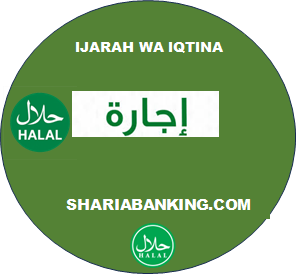
What is excatly Ijara Wa Iqtina in Islamic Finance ?
Ijara wa Iqtina (also called Ijara Muntahiyah bi-t-Tamlīk) is an Islamic lease-to-own contract. It combines the concept of Ijara (leasing the usufruct of an asset) with Iqtina (acquisition); in this arrangement, a financial institution (lessor) purchases an asset—such as a house, car, or equipment—and leases it to the customer (lessee) for a fixed period at an agreed rent.
Alongside Ijara wa Iqtin lease contract, there is a separate unilateral promise that the asset will be transferred to the lessee at the end of the term, either as a gift or through a nominal sale price. Ownership of the asset remains with the lessor throughout the lease period, while the lessee enjoys the right of use.
<!—wp:paragraph –>
The contract is Sharia-compliant because it separates usufruct (manfa‘a) from ownership (raqabah). Rent is charged for the use of the asset, not for the money lent; the lessor bears ownership-related risks such as major maintenance, insurance (if applicable), or loss due to events beyond the lessee’s control.
The key distinction is that Ijara wa Iqtina towwards conventinal leasing ties payment strictly to usufruct and not to a loan of money. Rent payments are compensation for use, and ownership risks are retained by the lessor until the actual transfer of title.
What types of Ijara Wa Iqtina are available ?
Within Ijara wa Iqtinā (Islamic lease-to-own), scholars and practitioners recognize several types or structures, depending on how ownership is eventually transferred and how the promise to transfer is documented. Here are the main ones:
1. Ijara with Gift (Hibah) at the End
-
- The lessor promises that once the lessee completes all lease payments, the asset will be transferred as a gift.
-
- Common in retail car or home finance, where the bank transfers title for a token amount (e.g. 1 unit of local currency) or without cost.
-
- Sharia compliance: the Ijārah (lease) and hibah (gift) are separate undertakings.
2. Ijara with Sale at Nominal Price
-
- At the end of the lease term, the lessor sells the asset to the lessee for a symbolic or nominal price.
-
- This ensures legal transfer of ownership through a sale contract, distinct from the lease contract.
-
- Used often in real estate and equipment financing.
3. Ijara with Gradual Sale (Ijara wa Iqtina bi-l-Tanjīm)
-
- Ownership is transferred in stages as the lessee makes payments.
-
- Each installment may consist of two parts: rent (for usufruct) and partial purchase price (for ownership units).
-
- By the end of the lease, the lessee owns the asset entirely.
-
- Often used in long-term property financing.
4. Ijara with Deferred Sale at Market Value
-
- At lease maturity, the lessee may buy the asset at fair market value determined at that time.
-
- This gives flexibility if the lessee decides not to acquire ownership or if market value has shifted significantly.
-
- Less common in retail, but sometimes used in corporate or equipment leasing.
Which Islamic lessor offer Ijara Wa Iqtina worldwide ?
Here’s a list of Islamic lessors / banks that explicitly offer or structure products on the basis of Ijārah wa Iqtināʾ (lease-to-own) worldwide:
-
- Ijara Community Development Corp. (IjaraCDC) – USA & Canada – home financing (lease to own).
-
- Jaiz Bank Plc – Nigeria – “Jaiz Home Finance (Ijara wa Iqtina).”
-
- Al Baraka Bank – Pakistan – uses Ijarah wa Iqtina for asset financing.
-
- Meezan Bank – Pakistan – property and vehicle finance structured on Ijārah Muntahiyah bi-t-Tamlīk.
-
- Dubai Islamic Bank (DIB) – UAE – home and auto Ijārah with ownership transfer at end.
-
- Abu Dhabi Islamic Bank (ADIB) – UAE – Ijārah-based home and auto finance.
-
- Qatar Islamic Bank (QIB) – Qatar – real estate finance under Ijārah wa Iqtina.
-
- Kuwait Finance House (KFH) – Kuwait (also UK subsidiary) – home financing based on Ijārah lease-to-own.
-
- Al Rajhi Bank – Saudi Arabia – home financing with Ijārah wa Iqtina structures.
-
- Bank Islam Malaysia – Malaysia – AITAB vehicle financing (Ijārah + sale) effectively a form of Ijārah wa Iqtina.
-
- Maybank Islamic – Malaysia – AITAB financing for cars and homes.
-
- Faisal Islamic Bank of Egypt – Egypt – Ijarah / lease-to-own structures for property and assets.